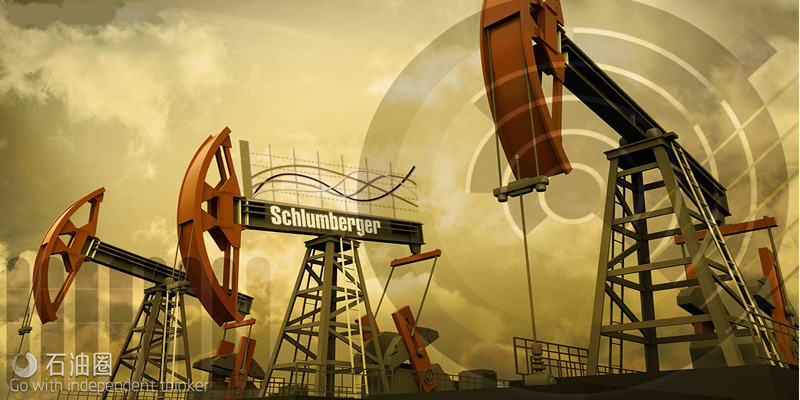Which is the best publicly-traded oilfield service company and why?
I was surprised to see my question on Oilpro concerning the “worst” service company rise to the top of the most popular list. One company quickly rose to the top. Hopefully they can learn from the feedback.
Now, I would like to ask the opposite question. Which is the “best” publicly traded oilfield service company and why? I realize this is very subjective but insights from the insiders is very interesting and helpful to the rest of us.
Mark Rankin
The worst one is the company that laid you off. The best one is the company that makes you an offer.
Farizah Asker
I can speak to financial performance which is important to shareholders, employees, and prospective employees.
I consider Halliburton (HAL) to be the best service company, at this time.
The old saying goes, “a rising tide floats all ships” but this metaphor breaks down in the stock market. Organizations vary greatly and management is a key component to buoyancy. Halliburton’s leadership has been stellar throughout the downturn.
Halliburton is the only company, among her peers, ranked by Zacks with a Strong Buy recommendation. A couple of points:
• It pays to be big. Halliburton offers a diversity of services to operators. As a point of fact, HAL operates under two units: completion and production, and drilling and evaluation.
• Halliburton has been one of the most aggressive cost cutters. $1 billion in savings were achieved through headcount reduction and consolidating facilities, ahead of their own schedule.
• Halliburton has outperformed their peers by a considerable 25% over the pasty 12 months.
I have compared XES to HAL. XES is an ETF covering S&P oil and gas equipment services companies.
While my answer is based on financial results, everyone likes a winner. It is more fun to work for a winner. It is more fun to work for management you respect.
A tell-tell(应该是tell-tale吧) sign that you are working for a bad company is if management is under attack. Are there activist investors targeting your company? Is the company a living, breathing rumor mill hating on management? If so, eject.
James Hardey
Schlumberger hands down. They usually manage to emerge from downturns in better shape than the others. They still have enough free cash flow to cover the dividend. Without the cost of the Cameron acquisition their results were decent. Halliburton is much more exposed to the shale drillers. Management cautioned about the fact that all the shale producers feature negative cash flow and are focused on short term equity appreciation rather than full cycle return and this should be cause for concern. Duh!
John Hoday
The answer you’re looking for will reside in the HAL/SLB/etc domain, and that’s kind of like a ‘what’s better – Coke or Pepsi’ question from the TV challenges in the 1990’s-ish era. These conglomerates will always maintain superiority until the earth explodes in a fiery gravitational pull into the sun. Just check the stock market to answer your own question.
This might be more of a discussion for the ‘why’.
The question needs to be identified on a geocentric basis – every area will have its’ own issues and requirements, and whatever service provider delivers the results in a professional and economic way, in that area, will be the ultimate answer.
As CEO of a start-up, we are driven by a couple major shareholders (private at this time), and are very focused on a large Australian target. We are presently using our technology in North America, Oman and Mexico, but the fit is overwhelmingly positive in our focus area. Our affiliation with other (3rd) parties is allowing us to build a dominant presence with several (here’s that all important phrase…) ‘fit-for-purpose’ solutions to resolve clients’ problems.
There is always a dominant service provider in any given area. But it’s the never-ending technology battle for supremacy that will pique the interest of, first clients, then investors. They know to keep an eye on the up-and-comers, and the hierarchy will sway and tumble as a result. Who will be the Big Red or Big Blue of tomorrow in your neighbourhood?!
Donald Callender
Who is the best publicly-traded oilfield service company and why? This should read ‘Which is the best…..’. Who is reserved for people.
Leon Massaras
Financials asside, When working on rotation (mostly international), HAL lets you work 4 and 4 or 5 and 5, while SLB lets you work 8 and 2. That is: weeks on and weeks off. SLB pays more, but you work more weeks. In the end, SLB pays less on a daily or weekly basis. So, the choice is very clear.
Rick Khan
The answer is very simplistic; the best publicly traded oilfield services company is the one that you have the best rapport with. It does not matter what the “other” company can offer, if you don’t have a good working relationship you find that you will always be faced with unnecessary delays regarding your purchase of equipment or service.


 石油圈
石油圈
